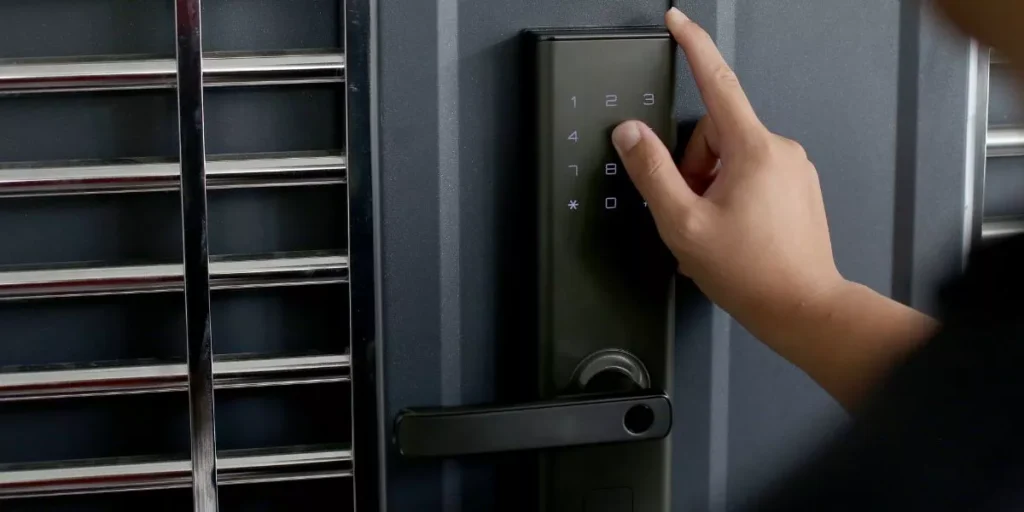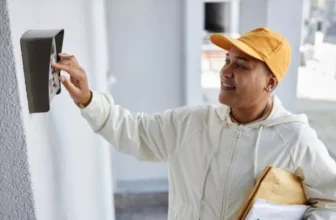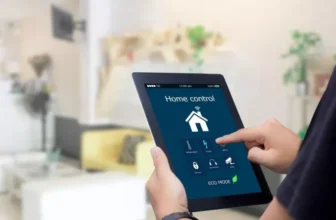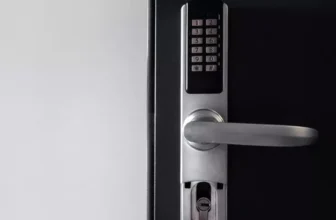
When considering the eco-friendliness of smart home security systems, you might be intrigued by the balance between technological advancements and environmental impact. The question of whether these systems truly contribute to sustainability opens doors to a deeper exploration. By examining their energy-saving capabilities, resource-conscious materials, and overall ecological footprint, a clearer picture emerges of how smart home security aligns with environmental goals. Stay tuned to unravel the intricacies of this evolving landscape and discover the potential implications for a greener future.
Energy Efficiency of Smart Home Security Systems
Optimize your smart home security system for energy efficiency to reduce environmental impact and lower utility costs. By making simple adjustments like setting up motion sensors to activate lights only when necessary or using smart plugs to schedule when devices should be turned on or off, you can significantly decrease energy consumption. Additionally, consider investing in smart thermostats that can regulate temperatures based on your preferences and presence, saving energy when you’re away.
Updating your security system to utilize solar-powered devices can further enhance its eco-friendliness. Solar panels can power outdoor cameras, motion sensors, and lights, reducing reliance on traditional electricity sources. This not only benefits the environment but also decreases your electricity bills in the long run.
Furthermore, choosing energy-efficient devices when upgrading your security system can make a substantial impact. Look for products with high energy star ratings or those that use low-power consumption technologies. These choices not only contribute to a greener lifestyle but also help you save money over time. By optimizing your smart home security system for energy efficiency, you can create a more sustainable and cost-effective living environment.
Materials and Manufacturing Processes
Enhance the sustainability of your smart home security system by considering the materials used and the manufacturing processes involved. Opt for security systems made from recycled or eco-friendly materials to minimize environmental impact. Look for products that prioritize sustainable sourcing practices, such as using renewable resources or reducing carbon emissions during production.
Manufacturers that implement energy-efficient manufacturing processes contribute to a greener future. Choose companies that follow eco-friendly standards and prioritize reducing waste generation. Additionally, look for smart security systems that are designed for longevity, reducing the need for frequent replacements and minimizing overall resource consumption.
Impact on Electronic Waste Management
Consider the environmental impact of electronic waste management when selecting a smart home security system, ensuring responsible disposal practices and reducing electronic waste accumulation.
Smart home security systems, while offering convenience and efficiency, also contribute to electronic waste generation. As technology advances, older devices are often replaced, leading to an increase in electronic waste.
It’s crucial to choose smart security systems from manufacturers that support recycling programs or offer trade-in options for old devices. By opting for systems with modular designs that allow for easy upgrades instead of complete replacements, you can reduce electronic waste production.
Additionally, considering the lifespan of the components and ensuring they’re recyclable at the end of their use can further minimize environmental impact. When purchasing a smart home security system, inquire about the manufacturer’s take-back programs or recycling initiatives to contribute to responsible electronic waste management and environmental sustainability.
Comparison With Traditional Security Systems
When evaluating smart home security systems, comparing them with traditional security systems reveals their technological advancements and potential benefits. Smart home security systems offer features that traditional systems lack. For instance, smart systems allow you to remotely monitor your home through mobile applications, whereas traditional systems often require manual arming and disarming. Additionally, smart systems can integrate with other smart devices in your home, providing a comprehensive security network that traditional systems can’t match.
In terms of energy efficiency, smart home security systems are designed to consume less power compared to traditional systems. This not only reduces your carbon footprint but also results in lower energy bills. Moreover, the use of wireless technologies in smart systems eliminates the need for extensive wiring, which is common in traditional setups and can be resource-intensive.
Trending Products
























